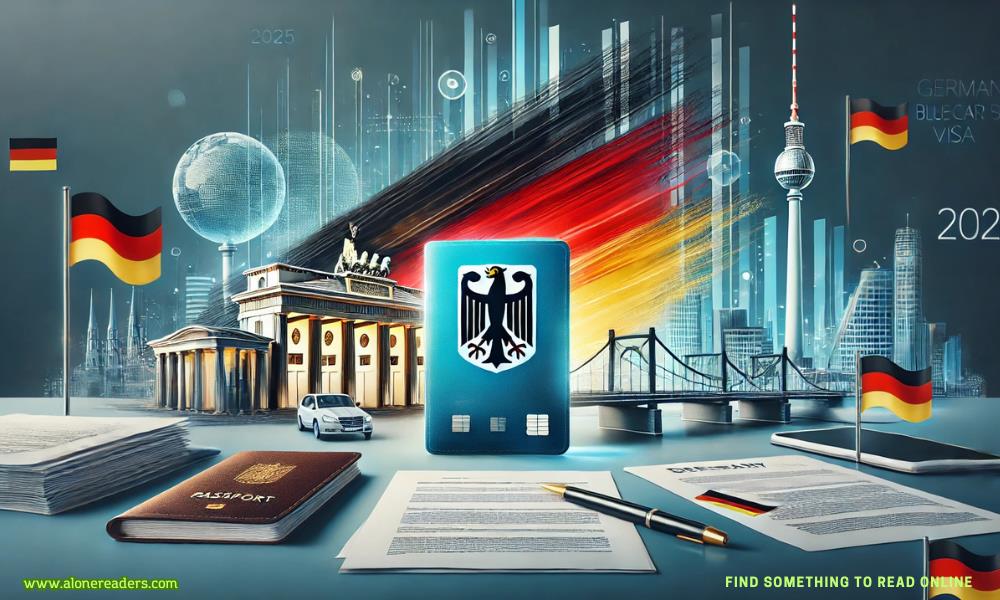
As globalization continues to shape the workforce, Germany remains a prime destination for skilled professionals seeking career advancement and high-quality living standards. The Germany Blue Card Visa, an EU-wide residence permit, plays a pivotal role in attracting talent from around the world. In 2025, the Blue Card Visa program has seen several updates to streamline the application process and expand its benefits. This comprehensive guide delves into the latest requirements and advantages of the Germany Blue Card Visa in 2025, offering valuable insights for prospective applicants.
The Germany Blue Card Visa is a residence permit designed for highly qualified non-EU citizens wishing to work and live in Germany. It facilitates the immigration process for professionals with advanced qualifications, offering a pathway to permanent residency and numerous employment benefits. The Blue Card is part of the European Union's broader initiative to attract skilled labor to member states facing labor shortages in specific sectors.
To qualify for the Germany Blue Card Visa in 2025, applicants must meet several criteria related to education, employment, salary, and more. Below are the key requirements:
1. Educational Qualifications
2. Employment Contract
3. Minimum Salary Threshold
4. Health Insurance
5. Proof of Qualifications
6. Language Proficiency
7. Application Process
The Germany Blue Card Visa offers a multitude of benefits designed to attract and retain highly skilled professionals. Here are the key advantages:
1. Faster Path to Permanent Residency
2. Family Reunification
3. Freedom of Mobility Within the EU
4. High Standard of Living
5. Competitive Salaries and Career Opportunities
6. Access to Education and Training
7. Security and Stability
8. Networking and Professional Community
Securing a Germany Blue Card Visa requires careful preparation and attention to detail. Here are some tips to enhance your application:
1. Thoroughly Prepare Documentation
2. Ensure Degree Recognition
3. Secure a Competitive Job Offer
4. Enhance Language Skills
5. Seek Professional Assistance
6. Stay Informed About Policy Changes
While the Germany Blue Card Visa offers numerous benefits, applicants may encounter certain challenges during the application process. Understanding these potential hurdles and knowing how to address them can improve your chances of success.
1. Meeting the Salary Threshold
2. Degree Recognition Issues
3. Language Barriers
4. Navigating Bureaucracy
5. Adapting to a New Culture
Looking ahead, the Germany Blue Card Visa is expected to evolve to further enhance its appeal to global talent. Anticipated developments include:
1. Increased Salary Thresholds
2. Enhanced Digital Application Processes
3. Expanded Recognition of Qualifications
4. Sustainability and Green Jobs Focus
5. Support for Startups and Entrepreneurs
Conclusion
The Germany Blue Card Visa remains a highly attractive option for skilled professionals seeking to advance their careers and enjoy a high quality of life in one of Europe’s leading economies. In 2025, the program continues to evolve, offering enhanced benefits and streamlined processes to meet the demands of a dynamic global workforce. By understanding the eligibility requirements, leveraging the numerous advantages, and navigating the application process effectively, prospective applicants can successfully secure a Blue Card Visa and embark on a rewarding professional journey in Germany.
Whether you are an engineer, IT specialist, healthcare professional, or expert in another high-demand field, the Germany Blue Card Visa provides a gateway to a prosperous future in Germany. Stay informed, prepare diligently, and take advantage of the opportunities that the Blue Card Visa offers to make your move to Germany a seamless and successful experience.